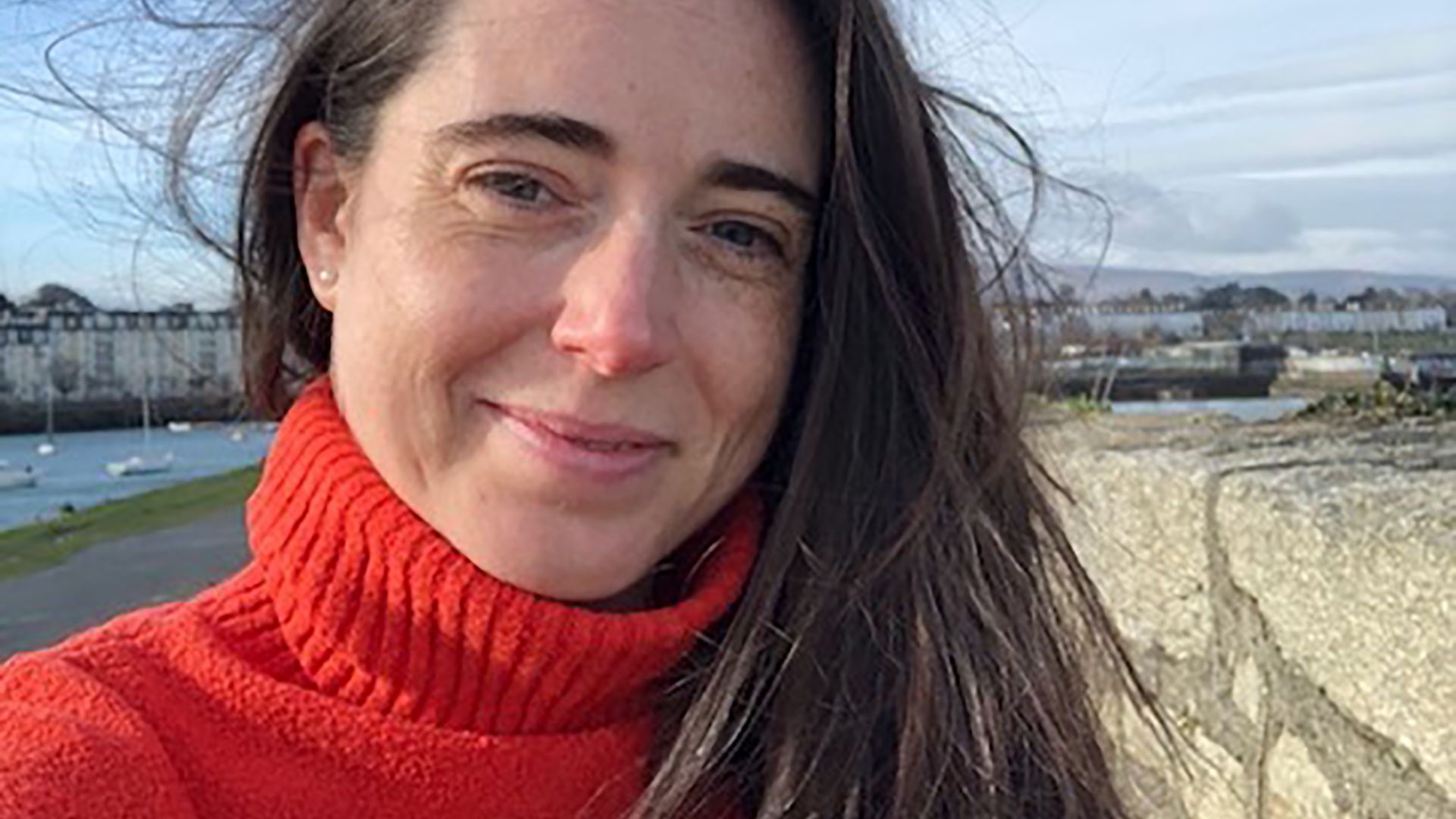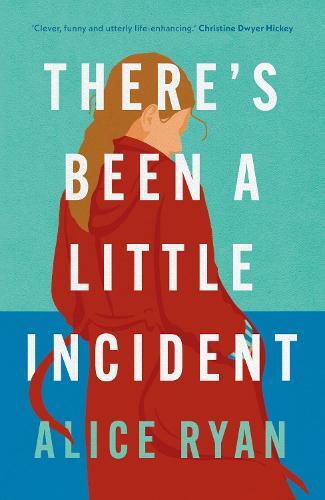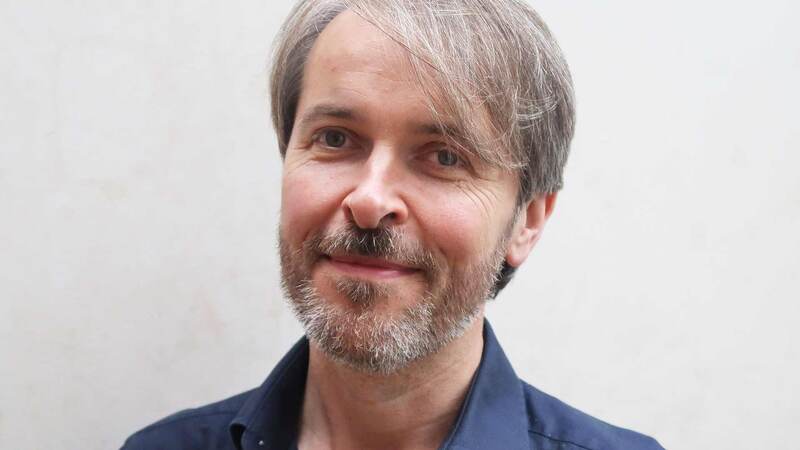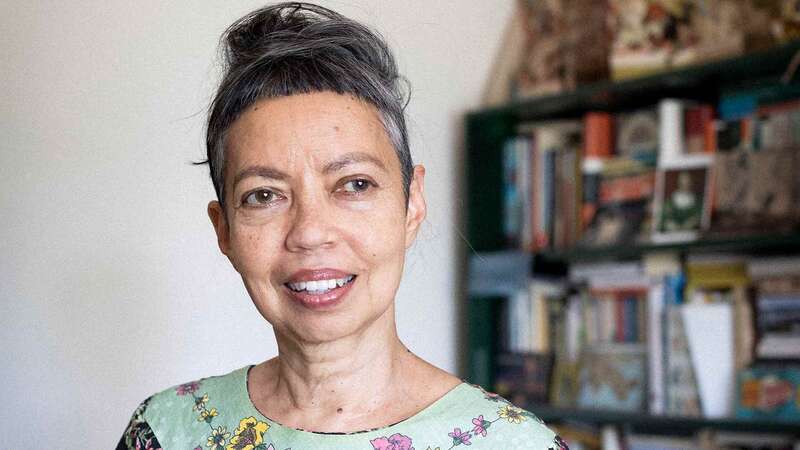You are viewing your 1 free article this month. Login to read more articles.
Alice Ryan talks about her debut, being taken seriously and finding time to write
The first novel from Dublin-based Alice Ryan sees relatives at home track the disappearance of London-based nomad Molly—but is all as it appears?
When I meet Dubray Books boss Maria Dickenson (see pp6–7) in a Dublin café, I ask her about the big titles her bookshops are expecting for the autumn. The first she mentions, understandably, is Bono’s memoir, almost certain to be Ireland’s biggest hit of the Christmas period. Then she leans in: “There’s a début novel we’re really excited about called There’s Been a Little Incident by Alice Ryan. Have you heard of it?”
Why, yes. Yes, I have. Full disclosure: Ryan was once of this parish, having run The Bookseller’s events before joining BBC Studios to become its head of insight, later moving back home to Dublin to lead content development at production company Primo. Furthermore, I will be interviewing Ryan the following day.
Ryan and I meet in Ranelagh, the leafy south Dublin district where she now lives. My first thought is that Head of Zeus (HoZ) must have a lot more cash to throw around for début novelist advances after the Bloomsbury acquisition. But no, she is here partly out of necessity as she, her husband and daughter moved back into her family home after Ryan was made redundant during the pandemic, when film and TV production had ground to a standstill. “I’m not complaining, I realise the privilege,” Ryan says. “My dad moved out to my grandparents’ farm and the [Ranelagh] house was going to be empty. Sure, I’m of the generation that will probably never be able to afford a house in Dublin, but I had this family support that many don’t have.”
The redundancy proved to be a boon as it gave her time to write; Ryan says that in some ways …Incident is her “other Covid baby”. Although, to be clear, it was not that much time and not for long. Her daughter Kate is now a toddler and last year Ryan returned to a day job at Arts Council Ireland. She says: “I remember lying with Kate, trying to get her to sleep while balancing my phone and typing some notes for the novel on it. I wrote a lot of it on my phone in odd bits of time. I did have this fantasy of being interviewed for this book and someone would ask: ‘Oh, you’re a full-time working mum, how do you find time to write?’ And I would look back and deadpan: ‘I don’t’. And it’s true, mums don’t have time, you kind of have to carve it out.”
When I wrote this, I thought, ‘Fuck it, I’m just going to write the book I would want to read
After I apologise for the patriarchy, we move on to the novel and we are back to family support. There’s Been a Little Incident centres around the search for Molly Black, who has gone missing from her London flat. The 29-year-old has been erratic since her parents died—her dad from cancer when she was 10; her boho, playwright mother Annabelle in a car crash eight years later—but the current “little incident” is more serious.
Or is it? The bulk of the novel is set back home in Dublin as the extended Black clan are whipped into action by uncle John, Molly’s surrogate dad since her own passed away. But some of the Blacks, like model turned ruthless (but dissatisfied) fitness entrepreneur Lady V, think this is another of flighty Molly’s turns: she’s not gone missing, merely run away. Besides, many of the Blacks have their own problems: cousin Bobby, the gay rugby star who quit sport to become a teacher, still wrestles with a great loss; uncle Danny is lost in a fog of alcohol, the result of deep-rooted trauma; and quiet accountant cousin Anne, meanwhile, inwardly seethes that attention has turned to Molly—again.
If this all sounds tough going, it’s not, as Ryan writes about the familial difficulties with warmth, a lightness of touch and much of it, even during the pathos, is downright hilarious. Ryan says she had written a first book years ago—“now in the bin, it was my obligatory Trinity novel”—that touched on many of the themes of …Incident. “But it was all feelings, feelings, feelings with no plot. So when I wrote this, I thought, ‘Fuck it, I’m just going to write the book I would want to read.’ I suppose there is this desire to be literary and taken ‘seriously’. But I woke up one day and thought, ‘Who wants to be taken seriously?’ Then I was thinking about Where’d You Go, Bernadette or Nora Ephron’s Heartburn—there is a genre where you can be funny, but also be smart and tackle bigger issues.”
Beyond grief
That tone did also surprise, as when HoZ announced the title during Frankfurt Book Fair 2021, the press release leant into …Incident being a grief novel, taken from Ryan’s own life. In late 2011, Ryan’s mother, the Irish Times’ literary editor Caroline Walsh, fell ill with what would eventually be revealed as a hyperthyroidism, which triggered a temporary psychosis. Walsh went missing after not showing up for a doctor’s appointment and after an agonising couple of days, her body was found just before Christmas in the Irish Sea off the coast of Dun Laoghaire. Walsh was well-known and liked in literary Ireland and her tragic death had tributes pouring in from the greats of the Irish books world such as Seamus Heaney, Colm Tóibín and John Banville (Banville was a close friend, Walsh’s predecessor as the Times’ literary editor, and dedicated his 2012 novel, Ancient Light, to her).
That’s why my first book didn’t work, because I wanted to deal with it in a linear way, but the whole process of grief is just so messy
And while …Incident tackles grief, it does so obliquely and with humour. Ryan says: “I guess that first book I tried to write was more directly [about my mother]. But I’m glad working with grief ended up like it does in …Incident, as it’s reductive to think that you’re sitting in this kind of very contemplative space—particularly when it is about suicide—having well-processed thoughts about it. That’s why my first book didn’t work, because I wanted to deal with it in a linear way, but the whole process of grief is just so messy.”
In the blood
Going by DNA, Ryan may have been destined to be a writer. In addition to Walsh, who was at the Times in various roles for 35 years, her father James Ryan is a novelist and, until retirement four years ago, the director of UCD’s creative writing programmes. Her maternal grandmother was novelist, New Yorker regular and giant of the 20th-century Irish short story Mary Lavin (in 2021, Lavin became the first Irish female writer to have a Dublin city square named after her). Her cousin is RTÉ presenter turned novelist Kathleen McMahon, whose Nothing But Blue Sky (Sandycove) was longlisted for 2021’s Women’s Prize for Fiction.
Ryan is not so sure that literature is in the genes: “Well, my degree is in business. And I think my brother Matt has read three books for pleasure: [Pogues frontman] Shane MacGowan’s memoir, about half of The Three Musketeers, and mine.” Even if Matt Ryan never discovered if D’Artagnan and his pals got one over on Cardinal Richelieu, he has done well for himself, as he co-owns Press Up, one of Ireland’s leading hospitality companies which runs boutique hotels, gyms, cinemas and events venues.
Her next novel is bubbling away, but Ryan is not going to rush it. “I used to live in fear of anything more than a one-book deal. Which, I discovered, is not something you should ever tell an agent. Look, everyone is interested in a début, no one—the press, etc—cares that much about the second."
Extract
“There’s been a little incident.”
Uncle John stared at us gravely. We had attended enough family meetings to know that the incident could be that he’d discovered a small bomb at the underpass of the dual carriageway. Equally we could have run out of mini-quiches.
He ushered us into the den. A map of Europe stretched across the wall. Red thumbtacks marked Molly’s movements like the Allies’ progress during the Second World War — if the Allies had moved between damp flats in north London. At the centre of the corkboard was the note she had left her best friend B. The note didn’t say where she was going, just that she loved us, but had to run. Maybe a romance had escalated inconveniently. Maybe she was just bored. Either way it seemed as if—this time—the incident was that Molly had disappeared again.
“If nothing else, having a mother that commits suicide gives you some perspective. I’m not going to freak out about my début, I’m not going to freak out about my second. But I know from working in books and TV that the creative process should take time. Some authors are truly book-a-year people, but that’s not me. I would be happy to write five good books in my lifetime that were really different, in which I learned something and developed from each. The big lesson for me of writing for so long to get to …Incident is you absolutely can’t please everyone—you have to do it for yourself and enjoy the process.”










